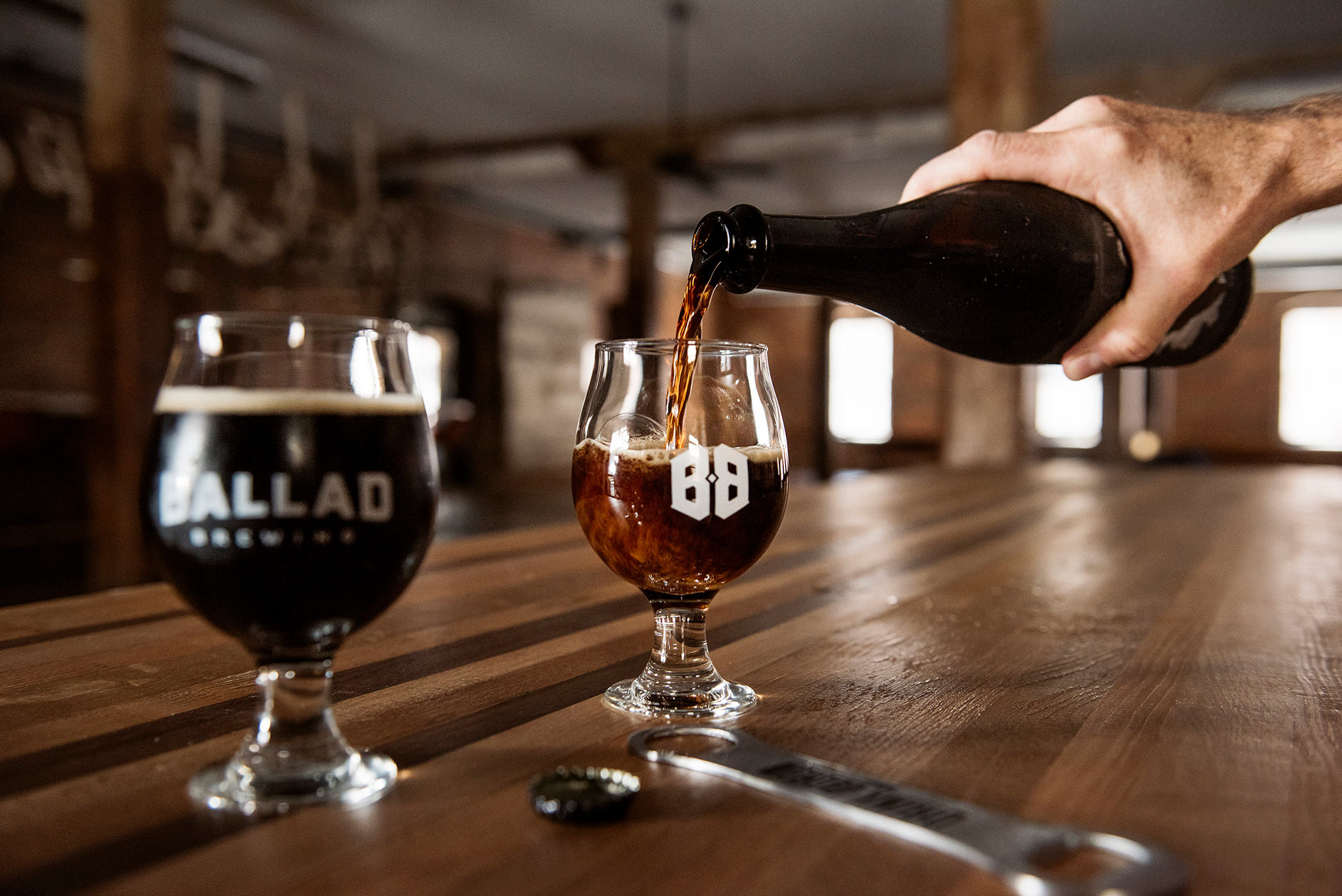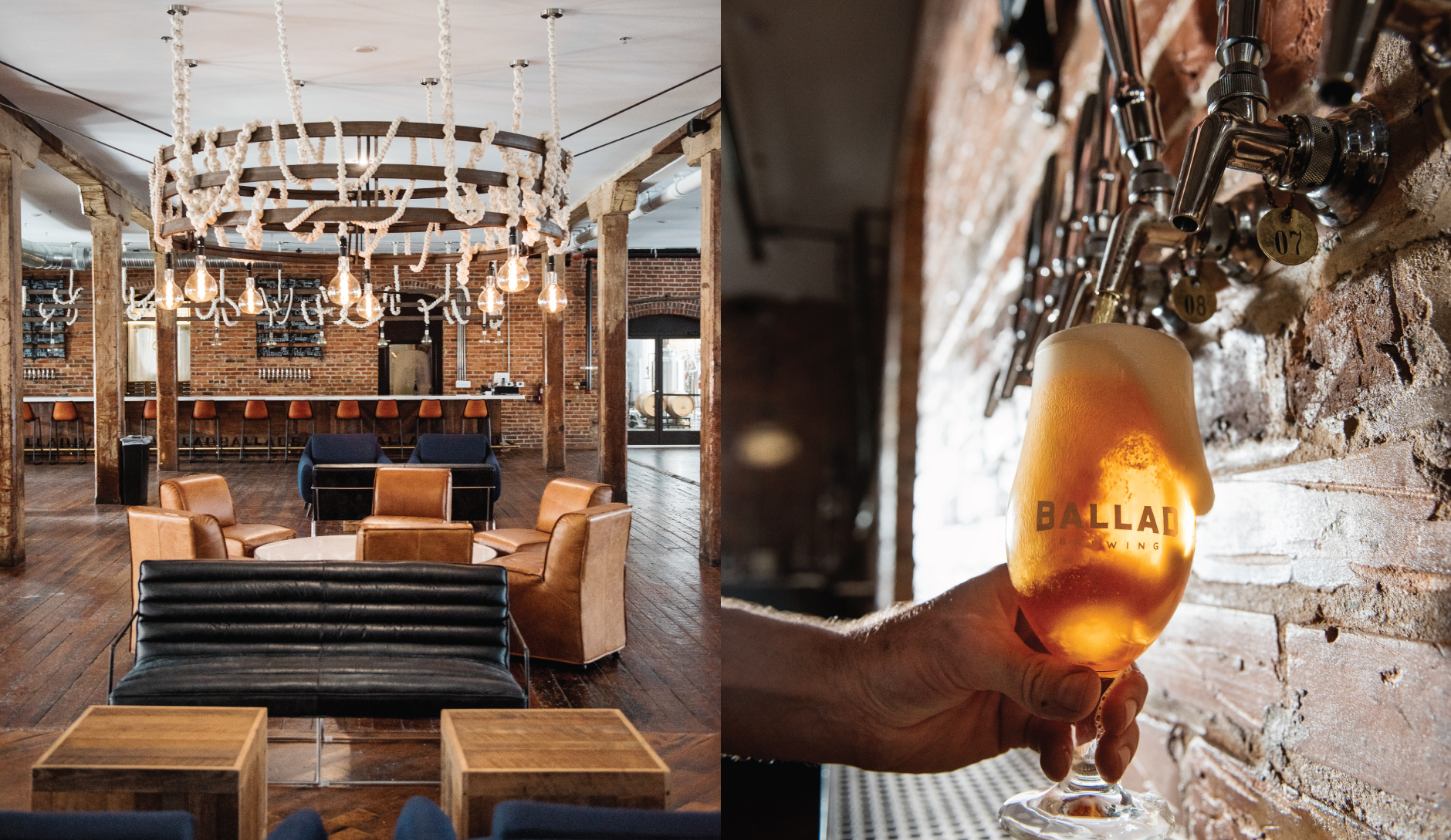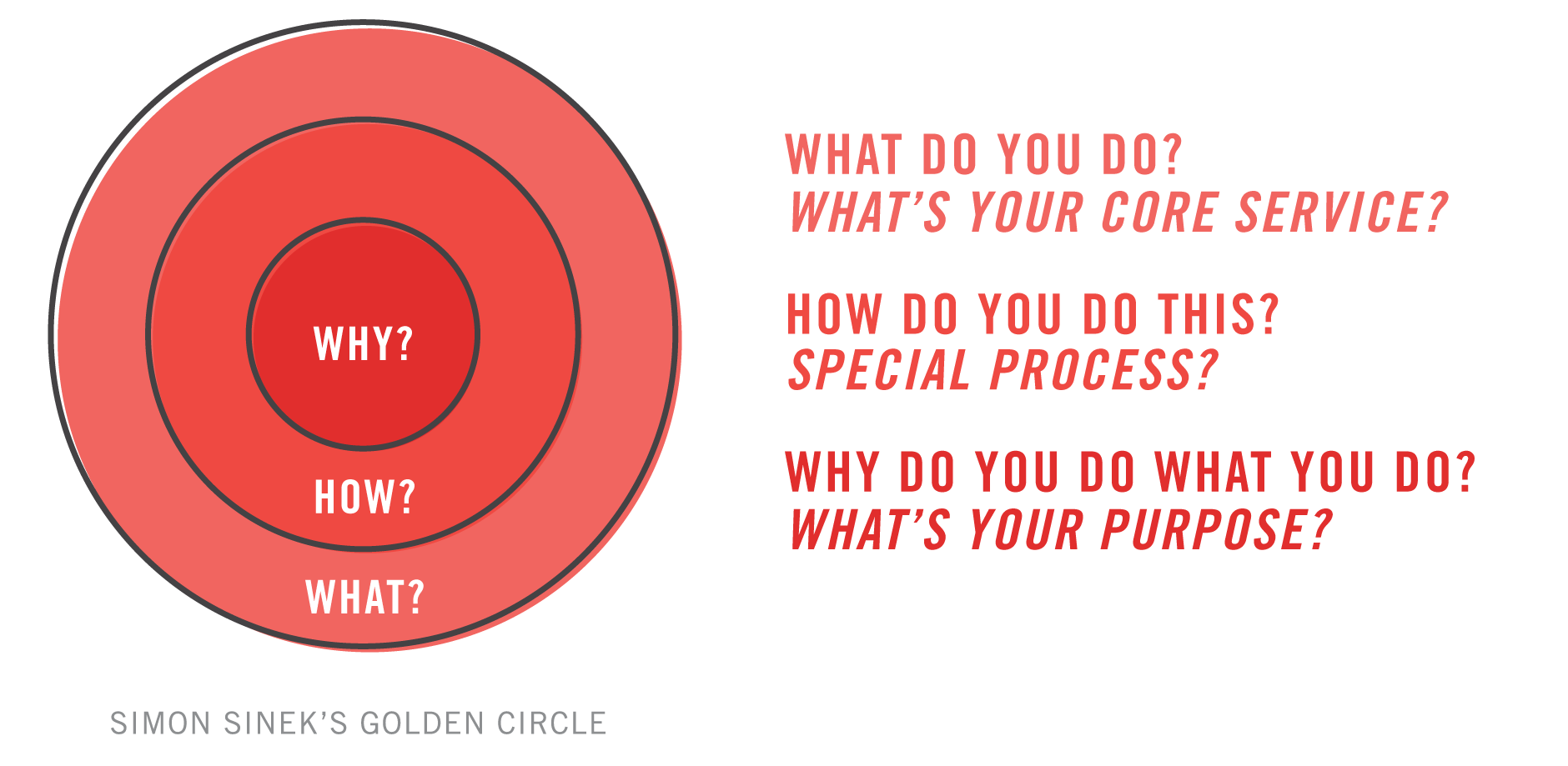YOUR CORE VALUES ARE THE IMMUTABLE RULES THAT GUIDE EVERYTHING YOU DO. THEY INFORM BUSINESS DECISIONS, BRANDING CONSIDERATIONS, THE BEER YOU BREW, AND HOW YOU DEAL WITH SUCCESS (AND FAILURE). THEY ARE YOUR REASON FOR BEING.
Your brand’s core values are set in stone the moment you decide to open your brewery. There are many reasons you want to run your own business, brew the beer you want to brew, and create the sort of experience you envision for your customers. An important step in the branding process is to clearly define these.
Your brand values are a set of emotional and qualitative rules that set the stage for your entire business ecosystem. Why do you exist? Who makes up your tribe? What do you stand for? It’s important to define these because they directly influence your brand essence, positioning, storytelling, and broad strategic decisions. They inspire your internal team, attract the best talent, and get customers excited to support you (we all want to support companies we believe in).
To begin this process, write out all the different values your brewery holds true. Here are a few examples to get you started:
innovation / community / artistry / precision / inclusive / adventurous / collaboration / curiosity / hungry / passion / playful / inventive / relentless / tradition / DIY / self reliance / balance / accessibility / mentorship / reverence / etc.
You should end up with a good-sized list, maybe 15–25 values. Once you’re finished, review them and try to combine similar ideas (it’s not uncommon to list a lot of synonyms). There’s no magic number, but we try to work toward whittling down to 3–5 core values. We find that this makes them easier to remember and more importantly, easier to live by.
Once you’ve narrowed your list of core values, let’s ask some questions to see if we can further refine them.
-
1
Does this value guide business decisions?
Does this value influence how you work with your customers and other organizations outside your business? For example, do you regularly think about this value when establishing relationships with distributors or supporting local charities? What about the other business you work with, such as restaurants or farms—how is this value reflected in the way you work with them?
-
2
Is this value set in stone?
It’s easy to be high and mighty when there’s no money on the line. How steadfast is this value? If a big enough opportunity comes around, can you be swayed from your position? If so, it may not really be a core value.
-
3
Is this value something you’re proud of?
Are you willing to wear this across your chest like a badge of honor? When telling people about your brewery, is this one of the first things you mention?
-
4
Is this value the reason you started your brewery?
Cut right to the heart of it—why are you starting your brewery? Can you boil the reason down to one or two words?
At this point you should be down to a pretty tight list (3–5). Now, take some time to write about what each of these values means to you—nothing crazy, maybe a paragraph or two. Why is “artistry” a core value? What does that mean to your brewery and why does it matter? Through this exercise, you may be able to rename these values to be more thematic, ownable and actionable.
Dogfish Head, a brewery known for its experimental brewing, is a great example of how core values translate into solid branding. With its focus on innovation and creativity, owner Sam Calagione beautifully expands on these ideas by saying, “Never let the tail of money wag the dog of inspiration.” This idea aligns well with his focus on boundary-pushing, atypical brewing, and is beautifully summed up by their brand essence, “Off Centered Ales for Off Centered People.” We’ll explore how to define your brand essence in the next chapter.


Ballad Brewing (Danville, VA) stands behind Craftsmanship and a deep respect for Tradition. These values drove them to renovate a lovely, centuries-old tobacco warehouse for their brewery.
OTHER THOUGHTS
-
1
WALK THE WALK
It probably goes without saying, but you have to actively live by these values for them to matter. If you pride yourself on making the best beer you can possibly brew, are you prepared to dump an entire batch of something that doesn’t meet your standards? Are you willing to lose money in order to stand behind your values?
It’s important for your entire team, up and down the chain, to understand, and live by these values. We’ll get into this a bit more when we discuss how to shape your brewery’s culture in a later chapter.
-
2
Be differentiated
There are some words that many businesses like to use to describe themselves, “ethical,” “trusted” and “quality” being some of the most common. While there’s nothing wrong with these concepts, they shouldn’t have to be said. Of course you should run your business ethically. But this idea doesn’t help you stand out from other breweries. Strive to stand for something that’s unique to your team—something that truly differentiates you from your competition.
-
3
Don't be afraid to be yourself
A lot of companies we’ve taken through this process have tried to create a “perfect storybook” image of themselves. “We make the best beer, and treat everyone perfectly, and we recycle, and we change the oil in our car every 3,000 miles, and we always remember to call our mom on her birthday, and we help old ladies cross the street…” You get the picture.
It’s important to tell the real story, your story. You need to look inward and define the values that you live by, even if they’re different from what the rest of the world expects. You can’t be perfect, so just be yourself and trust that you’ll attract the right people.
-
4
"Start with Why"
A fantastic place to begin framing your values is to understand your “Why.” Simon Sinek familiarized this concept in his fantastic book, “Start with Why.” (if you’re not the reading type, you can also find a great TED Talk on this subject). Sinek says that there are three layers to your story—the What, the How, and the Why. Most breweries land somewhere between the What and the How as far as their marketing is concerned, but the Why is what draws people in and creates a deep emotional connection (assuming you brew great beer of course). This directly informs your positioning and the role you play in your community and market.

QUICK EXAMPLE:
WHAT: “We’re a small, Belgian-focused brewery.”
HOW: “We use traditional Belgian brewing methods to create authentic Belgian beer.”
WHY: “My great, great grandfather worked at a brewery in Belgium and I grew up hearing stories about him. I’ve wanted to be a brewer for as long as I can remember.”
While this is a made-up example, you can see how this ‘Why’ is more compelling than the ‘How,’ which is more of a black-and-white fact than something that would make our fictional brewery different from other breweries.

